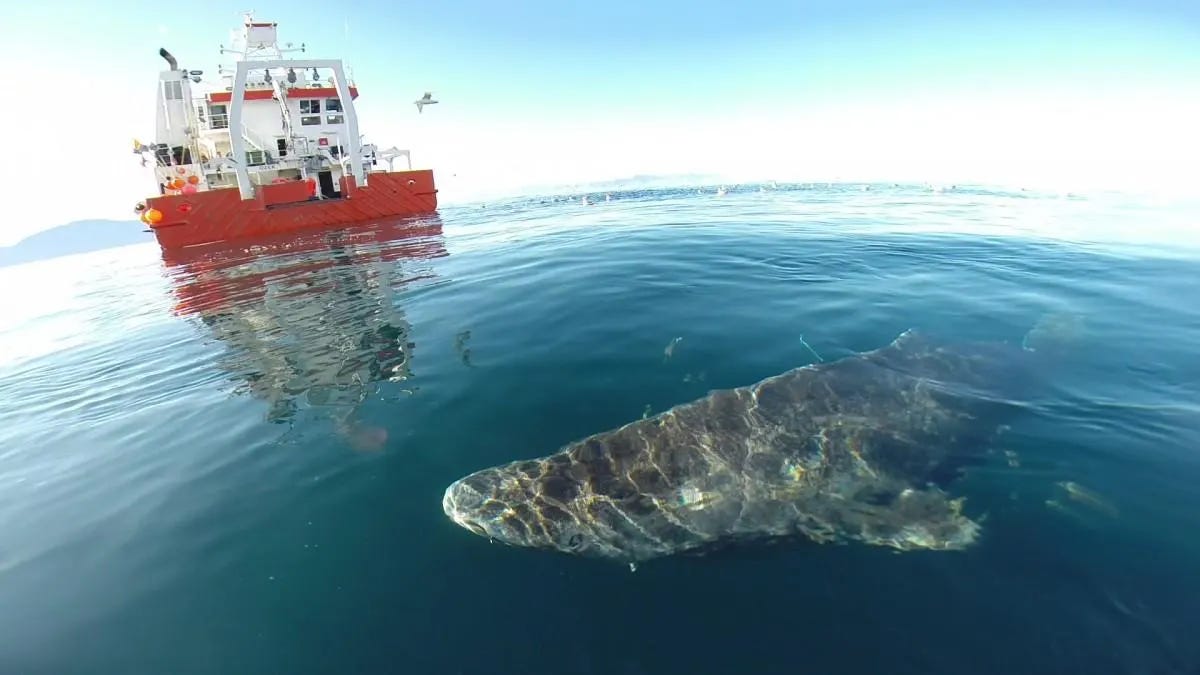How Nuclear Fallout Helped Identify Longest-Lived Vertebrate On Earth
Radiocarbon dating reveals that the Greenland shark reaches sexual maturity at 150 years of age, and has a lifespan of at least 400 years, making it the longest-lived vertebrate on Earth
A Greenland shark, Somniosus microcephalus, near the water’s surface after its release from the research vessel Sanna in northern Greenland. (Credit: Julius Nielsen / doi:10.1126/science.aaf3617)
Beneath the frigid and gloomy waters of the tempestuous North Atlantic Ocean lurks a giant. This giant is a mysterious shark that we know almost nothing about, except for the few scraps of information that we glean from individuals that turn up in fishermen's trawls and long-lines as by-catch.
We do know, for example, that the Greenland shark, Somniosus microcephalus, is not a picky eater. In fact, it appears to eat almost anything that will fit into its mouth, from crustaceans, cephalopods, snails, echinoderms and other fish (including sharks) to seals, reindeer, horses, moose and even polar bears.
Keep reading with a 7-day free trial
Subscribe to Words About Birds to keep reading this post and get 7 days of free access to the full post archives.


